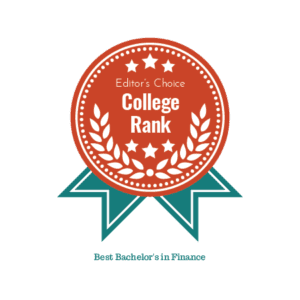Bachelor of Special Education
Do you want to make a difference in the lives of others? Are you interested in working in a diverse environment? Special Education might be the path for you!
Teacher candidates earning a Special Education degree learn effective strategies to teach students with varying disabilities on all different levels, PK-12th grades.
Teachers will be skilled in all core content areas.
Purpose
The program prepares highly competent teachers dedicated to the field of special education
and qualified to teach students with exceptional learning needs in grades PK-12.
The special education degree at NSU is aligned with the Council for Exceptional Children (CEC) and the Association for Childhood Education International (ACEI) content areas for mild/moderate disabilities for PK-12th grade classrooms.
This certificate/degree is inclusive of all areas of Special Education for the mild/moderate, severe/profound, and comprehensive levels of severity.
Student Learning Outcomes
- Demonstrate understanding of how exceptionalities may interact with development and learning and use this knowledge to provide meaningful and challenging learning experiences for individuals with exceptionalities.
- Select, adapt, and use a repertoire of evidence-based instructional strategies to advance learning of individuals with exceptionalities.
- Apply knowledge of general and specialized curricula to individualize learning for individuals with exceptionalities.
- Create safe, inclusive, culturally responsive learning environments so that individuals with exceptionalities become active and effective learners and develop emotional well-being, positive social interactions, and self-determination.
- Select and use multiple methods of assessment and data-sources in making educational decisions.
- Collaborate with families, other educators, related service providers, individuals with exceptionalities, and personnel from community agencies in culturally responsive ways to address the needs of individuals with exceptionalities across a range of learning experiences.
- Demonstrate familiarity with augmentative and alternative communication systems and utilize a variety of technologies to support the communication and learning of individuals with exceptionalities.
- Use foundational knowledge of the field and their professional Ethical Principles and Practice Standards to inform special education practice, to engage in lifelong learning, and to advance the profession.
Teacher Education
- Explain theories related to the teaching and learning process.
- Demonstrate understanding of diversity.
- Integrate 21st century technological learning to enhance learning.
- Apply knowledge of classroom management.
- Apply knowledge of instructional strategies.
- Apply knowledge of assessment.
- Apply knowledge of instructional planning.
- Demonstrate dispositions and habits of professional educators.
Select one of the following options:
Certification (6874) Professional Educ Requirements - 29 hrs.
- EDUC 3313 - Clinical Teaching/Pre-Internship I
- EDUC 3113 - Educational Psychology
- SPED 4433 - Introduction to Education of Children with Exceptionalities
- EDUC 4823 - Technology and the 21st Century Learner
- SPED 4063 - Classroom Management of Children with Exceptionalities
- EDUC 4032 - Pre-Internship II
- EDUC 4054 - Elementary Intern Teaching (Full Internship Program)
- EDUC 4074 - Secondary Intern Teaching
- EDUC 4172 - Assessment and Evaluation
- EDUC 4252 - Seminar
Non-Certification (6878) Professional Educ Requirements - 29 hrs.
- EDUC 3313 - Clinical Teaching/Pre-Internship I
- EDUC 3113 - Educational Psychology
- SPED 4433 - Introduction to Education of Children with Exceptionalities
- EDUC 4823 - Technology and the 21st Century Learner
- SPED 4063 - Classroom Management of Children with Exceptionalities
- EDUC 4032 - Pre-Internship II
-
Complete 12 additional hours of electives with advisor and department chair approval. See catalog for additional information concerning this option.
The Accelerated Bachelor's to Master’s degree pathway (ADP) allows high performing undergraduate students an opportunity to complete the requirements for both the bachelor's and master’s degrees in Special Education at an accelerated pace.
Undergraduate students accepted for the ADP may apply up to 8 graduate (5000 level) credit hours towards the completion of both the bachelor's and master’s degree requirements.
ADP Eligibility
- Completed Accelerated Degree Program application.
- Minimum of 72 overall credit hours completed and a minimum of 12 hours completed in the Special Education major area.
- Transfer students must have completed a 12 semester hours at NSU.
- A minimum 3.0 cumulative undergraduate GPA, and a minimum 3.25 major GPA.
- Complete a Graduate College Admission application. Students will be admitted provisionally. Upon successful completion of the undergraduate degree, students will be eligible for full admission to the graduate college.
IMPORTANT:
- Students will complete SPED 4263 as part of the B.S.Ed. program with an additional assignment for graduate students.
- Students who do not follow the approved degree plan may become ineligible to continue in the accelerated degree program.
- Prior to completing the undergraduate degree, if the undergraduate GPA, graduate GPA and/or overall GPA fall below a 3.00, the student becomes ineligible to continue in the ADP.
- Students may withdraw from an approved accelerated degree pathway. Graduate credit hours completed prior to the student withdrawing or becoming ineligible to continue in the ADP apply toward the undergraduate degree only.
| SPED 4223-Instructional Design & Curriculum for Students with Disabilities | SPED 5203-Evidence-Based Strategies & Curr Design for Students with ASD |
| SPED 4242-Collaboration & Transition Planning of Students with Disabilities | SPED 5812-Seminar: Administration of SPED Programs |
| SPED 4253-Instructional Evals & Implementation for Students with Disabilities | SPED 5323-Response to Intervention & Assessment of Students with ASD |
| SPED 4263-Assistive Technology Strategies and Universal Design for Students with Autism Spectrum Disorders | SPED 5263-Assistive Technology Strategies and Universal Design for Students with Autism Spectrum Disorders |
Second Language Requirement for Teacher Education Majors
According to the Oklahoma State Regents for Higher Education (OSRHE) academic policy 3.21.4E:
Teacher preparation programs at the preservice level shall require students to meet one of two criteria addressing foreign language or Emergent Bilingual / English Learning in P-12 schools.
- Teacher candidates demonstrate listening and speaking skills at the novice-high level, as defined by the American Council on the Teaching of Foreign Languages, for a language other than English, including American Sign Language. The assessment for such competency may occur at any point in the teacher candidate’s program and does not require specified course work or credit hours except as may be required by the institution.
- Teacher candidates demonstrate the knowledge and skills necessary to address the needs of Emergent Bilingual (English Learner) students in the P-12 classroom and are proficient in the strategies required for successful delivery of P-12 instruction in that area. The assessment for such competency may occur at any point in the teacher candidate’s program through specified course work, approved by the Office of Educational Quality and Accountability (OEQA), and as may be required by the institution.
Students may use foreign language courses to also meet the Global Perspectives category (3 hrs) in General Education requirements. See General Education Requirements for more information. General Education Requirements .
Teacher Education Admission and Certification Policies
In addition to courses in the discipline, all students completing a baccalaureate degree that leads to teacher certification must meet the following requirements for certification.
- Be accepted for admission to teacher education, pre-II internship, and full internship according to published course sequence and guidelines.
- Demonstrate proficiency at the high novice level in a language other than English.
- Complete all courses in the major and Professional Education Core with a grade of “C” or higher.
- Students entering NSU beginning Fall 2013 must have an overall GPA of 2.75 for admission to teacher education.
- Once admitted to the teacher education program, all majors must continue to maintain a GPA of 2.5 (overall and in their major field of study) through completion.
- 4 X 12 requirement - Early Childhood, Elementary Education, and Special Education programs require completion of 12 semester hours with a grade of “C” or better in the following disciplines: Communication Arts (English, Communication, Literature), Math, Science, and Social Science (Economics, Geography, History, Political Science, Psychology, Sociology) prior to graduation.
- All Professional Education majors must complete PSYC 1003 or PSYC 1113. Advisors recommend those courses be completed as part of the General Education course sequence.
ECED/ELEM/SPED Non-Certification Option
Students admitted to the Teacher Education Program may apply to receive a degree in Education with the Non-Certification Option:
1. When a student realizes that teaching is no longer his/her chosen profession, but
he/she wishes to complete an education degree without certification rather than changing
major, OR
2. When career goals require a degree in education without teacher certification,
OR
3. When circumstances prohibit loss of employment while student teaching.
Students receiving a degree in Education without Certification must:
1. Notify the Director of Clinical Education, in writing, of the desire to pursue
an education degree without certification, naming one of the three reasons listed
above as the basis for the request;
2. Complete the appropriate agreement form and submit it to the Director. The Director
will forward the form, with his or her signature, through the appropriate Chair to
the Dean and the Certification Office, where it will be placed in the student’s Clinical
Education file.
3. With the exception of student teaching, successfully complete all the courses except
for student teaching required for a degree;
4. Follow all policies and procedures and regulations outlined in the Teacher Education
Handbook and NSU catalog related to teacher education;
5. Satisfy the full admission requirements for teacher candidacy and the criteria
for progression;
6. Successfully complete all courses and field experiences, including Practicum, required
for an education degree, with the exception of Student Teaching. With the approval
of his/her academic advisor, select and complete twelve (12) additional semester hours
of electives. These 12 semester hours of electives replace the student teaching with
the approval of his/her advisor and department chair.
Final Semester: Electives- 12 hours
Non Certification Option: With approval of academic advisor, 12 hours may be substituted for the final semester of intern teaching and seminar for a candidate seeking a degree in education without certification. These 12 semester hours of electives replace the final intern teaching requirement.
A student who chooses to receive the Bachelor’s Degree in Education with the Non-Certification Option is not eligible for recommendation for certification by the College of Education until such time the student successfully completes all certification requirements through the College of Education, including the final internship. The student is not considered a program completer for the certification path for which he or she was initially pursuing.
Degree Available At
- Tahlequah
- Broken Arrow
- Online
Transferring to NSU?
Make your transition to NSU as smooth and seamless as possible.
Visit Transfer Student Services for more information.
Career Services
PROGRAM CHAIR

Dr. Jarilyn Haney
haneyjw@nsuok.edu
(918) 444-3786
Licensure Programs
Northeastern State University offers initial teacher licensure programs at the traditional undergraduate level for graduates wishing to teach in Oklahoma. We also offer advanced licensure programs and programs for other school professionals at the graduate level. We do not guarantee to meet the licensure requirements of other states. You will be responsible for verifying that your program of study meets your desired state's licensure requirements.
Professional Licensure Disclosure
Programs at Northeastern State University that prepare students for initial licensure as educators are designed to meet the licensure standards set by the Oklahoma State Department of Education. Students seeking licensure in another state are advised to contact the appropriate licensing board in that state to determine specific requirements of guidelines for reciprocity. Northeastern State University cannot confirm whether a particular licensure program meets requirements for licensure outside of the State of Oklahoma. For a list of the state departments of education that oversee professional teaching licensure, see the U.S. Department of Education website - State Contacts page. Click here for NSU's state-specific matrix.
For questions related to licensure, please contact Lois Buttress (buttress@nsuok.edu).
TRANSFERRING TO NSU?
Make your transition to NSU as smooth and seamless as possible.
Visit Transfer Student Services for more information.


